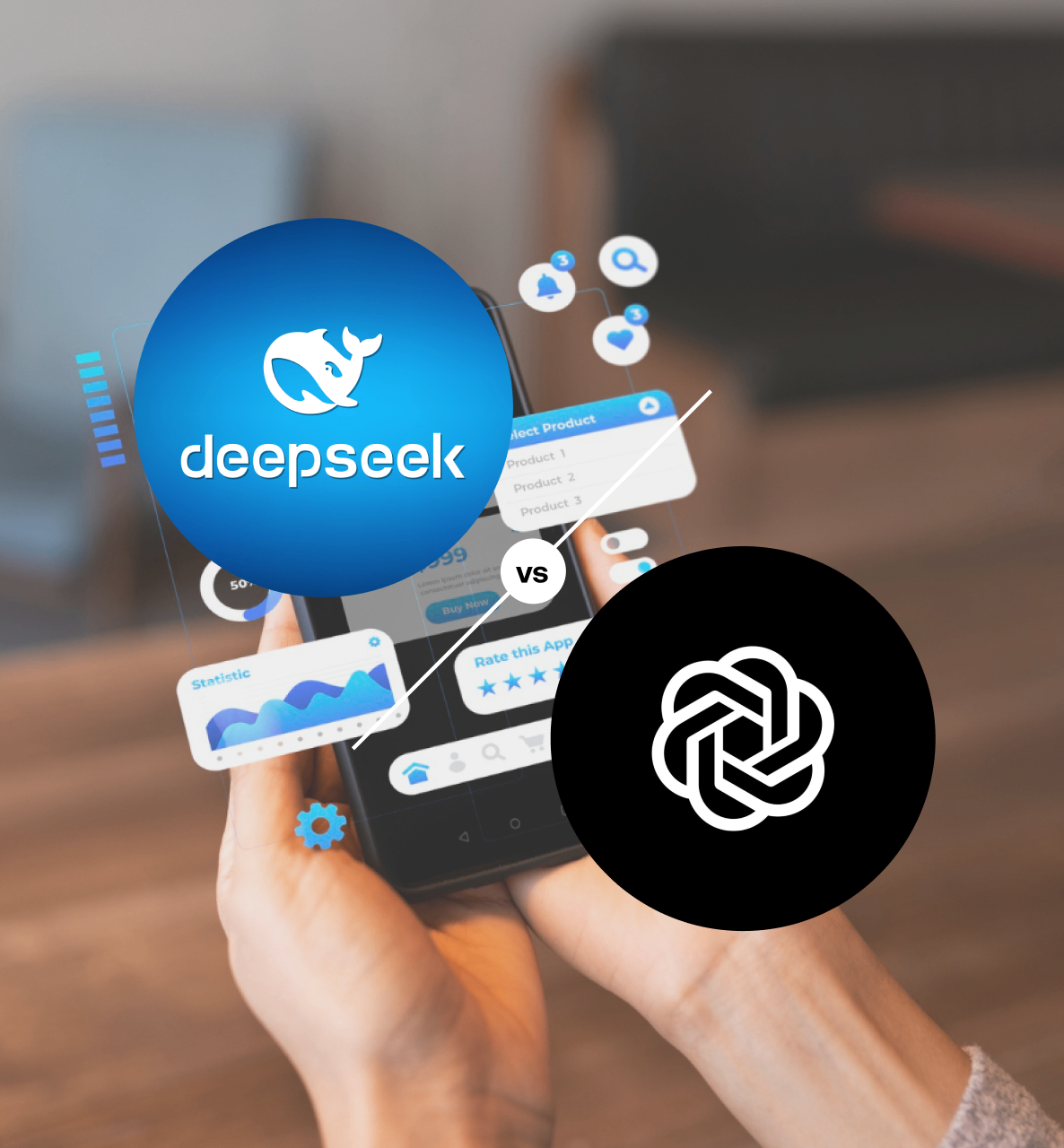Round 2 Deadline: 16th March 2026
Apply Now





Table of Contents
A deep dive into DeepSeek and ChatGPT—exploring how each AI model is optimized for research, conversations, and beyond.
AI is no longer a futuristic concept—it’s a fundamental force shaping industries, decision-making, and human-machine collaboration. While some models excel at processing vast amounts of structured data, extracting insights, and supporting complex research, others are designed to engage in human-like conversations, making AI more interactive and accessible.
This is where DeepSeek and ChatGPT come in—two cutting-edge AI models, each built for different purposes.
DeepSeek, an emerging AI powerhouse, is designed for structured reasoning, data analysis, and high-precision research, making it a valuable tool for fields like finance, enterprise applications, and scientific inquiry. ChatGPT, on the other hand, has revolutionized natural language understanding, offering seamless human-like interaction that powers everything from content creation to customer service and personal assistance.
While both models showcase the vast potential of AI, their fundamental differences highlight how AI is evolving to serve distinct needs. Whether you’re a researcher seeking rigorous data-driven insights or a business looking for an AI-powered conversational partner, choosing the right model is essential to unlocking AI’s full potential.
Both DeepSeek and ChatGPT are built on transformer-based deep learning but have different optimization goals:
DeepSeek: Prioritizes accuracy, structured reasoning, and retrieval-augmented generation (RAG). This makes it ideal for handling technical research, structured data analysis, and decision-making support.
ChatGPT: Specializes in conversational AI, excelling at generating human-like text, creative writing, and interactive chatbot applications.
For industries requiring precision—such as legal analysis, scientific modeling, or enterprise knowledge management—DeepSeek’s structured approach is more beneficial. Meanwhile, businesses looking for an AI that can seamlessly engage with customers or generate marketing content would find ChatGPT more effective.
Rather than asking which AI is better, the focus should be on selecting the right tool for the job:
Startups & Business Applications → ChatGPT streamlines customer support, sales automation, and content marketing, while DeepSeek enhances business intelligence, financial forecasting, and competitive analysis.
Research & Data-Driven Industries → DeepSeek supports complex problem-solving in fields like medicine, finance, and academic research, where structured reasoning is key.
Consumer & Enterprise AI → ChatGPT is widely adopted in AI-powered personal assistants, chatbots, and customer service automation, making it ideal for enterprises aiming for scalability in user interactions.
DeepSeek: Prioritizes structured data retrieval and accuracy, making it ideal for research, finance, and legal applications. Its open-source nature allows for deeper customization.
ChatGPT: Excels in generating engaging, contextually relevant text but offers limited customization compared to open-source models like DeepSeek.
The evolution of AI suggests that future advancements will blend structured intelligence with conversational capabilities. Businesses and researchers will increasingly require AI that not only generates insights but also explains them in human-like language. This convergence of structured reasoning and conversational AI is precisely what forward-thinking institutions are preparing for.
Institutions like Tetr College of Business are at the forefront of this transformation, training the next generation to not just use AI, but to shape its future. Through the Bachelor of Science in Artificial Intelligence, in partnership with Illinois Institute of Technology, students work on real-world AI applications, from optimizing business workflows to designing predictive AI systems for healthcare and finance. The program equips future AI leaders with both technical expertise and the ability to deploy AI effectively in industry settings.
Want to go beyond using AI and start shaping its future? Explore Tetr’s Bachelor of Science in Artificial Intelligence program and build the next generation of intelligent systems.